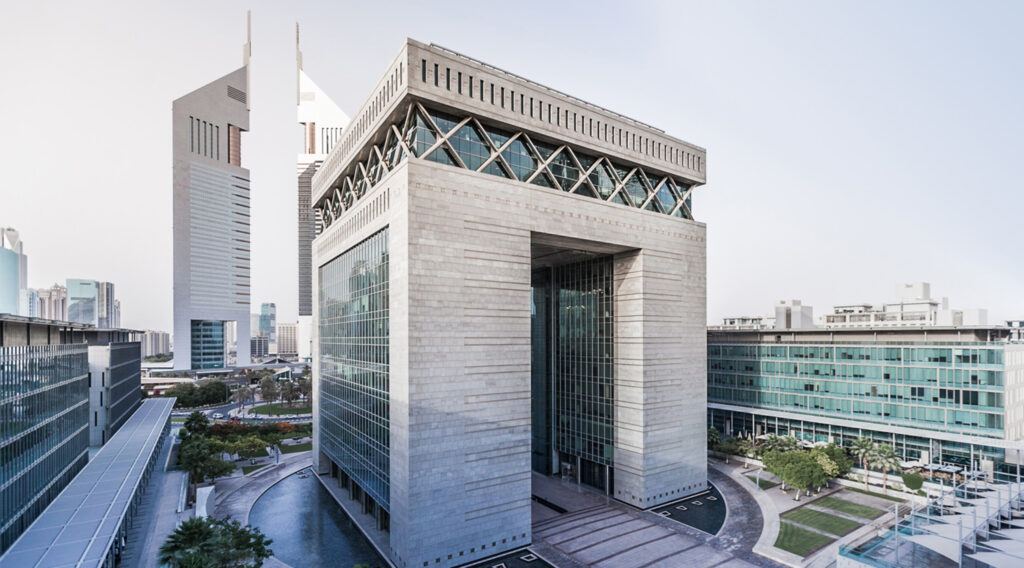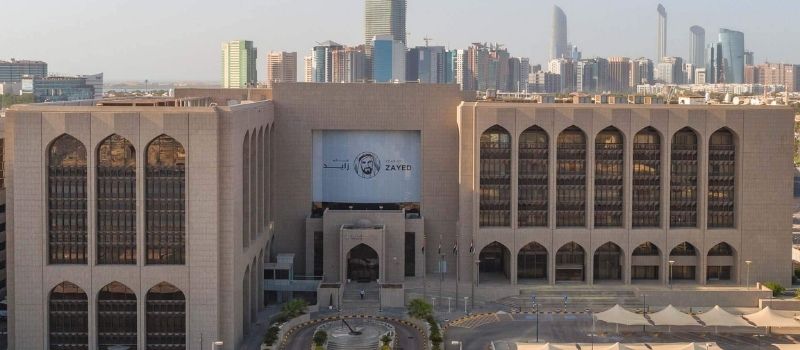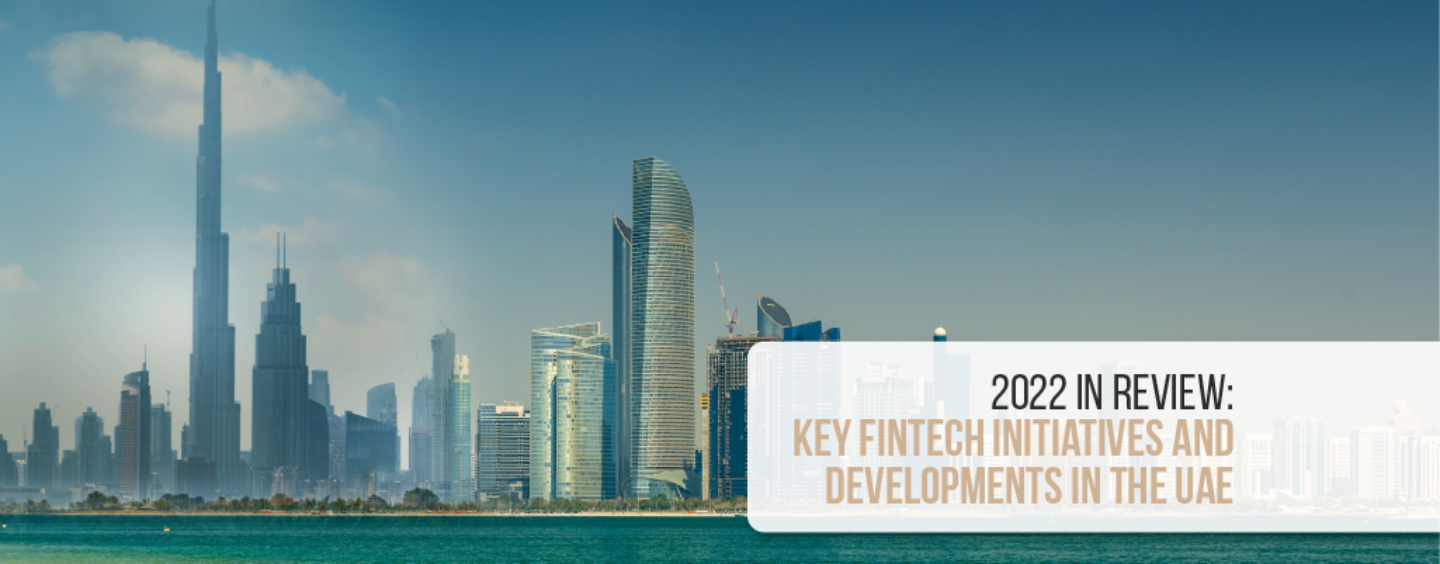Over the past years, the United Arab Emirates (UAE) has emerged as a leading fintech hub in the Middle East and North African (MENA) region, a position it has secured thanks to its innovation-enabling regulatory environment, government support as well as the slew of initiatives being introduced to foster entrepreneurship and attract global players.
2022 saw a number of new projects and developments being kicked off in the UAE, paving the way for greater innovation and further cementing the country’s leadership position in the regional fintech scene. These initiatives focus on emerging trends and strategic topics including digital currencies, crypto-assets and open banking.
As we move into 2023, we’ll look today at how the UAE’s fintech industry evolved in 2022, delving into funding activities and industry trends that emerged last year. We’ll also dig into the key fintech initiatives announced in 2022 to get a sense of what can be expected in 2023.
Fintech leads UAE startup funding
In 2022, fintech emerged as the preferred industry for startup investors in the UAE, accounting for 34% of total capital and 22% of transactions secured in the first half of the year. The trend is a testament of the confidence investors have in the prospect of technology to improve financial inclusion and provide products and services that are more in tune with new customer behaviors and expectations.
According to new report by Magnitt and the Emirates Development Bank (EDB), UAE fintech companies raised a total of US$234 million in H1 2022 through 28 deals, figures which represent a threefold year-over-year (YoY) increase in total funding amount and a 65% increase in the number of rounds. This growth showcases that despite the global funding downturn, the fintech fundraising landscape remained strong and maintained its dynamism in the UAE.
Fintech’s predominance in the UAE startup scene is further evidenced by the large rounds of funding closed by companies in the sector. Of the five largest deals secured in H1 2022, two involved fintech startups: Tabby, a buy now, pay later (BNPL) startup which closed a US$54 million Series B in March; and Wahed, a wealthtech startup that secured US$50 million in a Series B in June.
DIFC maintains position as leading fintech hub in the Middle East

In 2022, the Dubai International Financial Centre (DIFC) maintained its position as the leading fintech hub not just in the country but the broader Middle Eastern region as well.
Data from the government show that during the first nine months of the year, the number of fintech and innovation firms joining the special economic zone exceeded the total that established operations during the whole of 2021, indicating that tech firms continue to flock into DIFC.
In particular, the government said it had seen elevated levels of interest from fintech companies in Singapore, Southeast Asian and Asia-Pacific markets. These companies, DIFC said, are seeking new opportunities to scale beyond their regional borders and into new economies with demand for innovative products and services.
According to Arif Amiri, CEO of DIFC Authority, the location has attracted more than 600 startups, growth stage companies and unicorns to Dubai in recent years. These are leveraging DIFC’s multiple fintech initiatives, capabilities and schemes that span education, entrepreneurship, acceleration programs, mentoring and networking, funding and expertise, as well as its favorable regulatory framework, he said.
DIFC operates what it claims to be the region’s largest fintech startup accelerator. The program has so far delivered more than 100 proof of concepts with the support of over 65 partners, the government said.
DIFC unveils new fintech initiatives
At DIFC, new initiatives to support fintech development multiplied in 2022, focusing on fostering innovation, attracting foreign startups and nurturing talent.
In April, DIFC unveiled its so-called venture studios, an initiative that seeks to build and invest in promising startups, providing these young ventures with legal and regulatory support, access to talent and shared services such as marketing, branding, design and engineering. The financial center aims for more than 20 studios to be set up over the next five years. These are expected to launch over 200 new ventures.
The announcement of the venture studios was followed in June by the launch of the Open Finance Lab, a six-month program for banks and fintech companies to collaborate on open finance use cases. In addition to facilitating collaboration between banking incumbents and startups, the lab is also tasked with running business and technical deep-dive workshops, and facilitating industry and regulatory forums on critical topics including API standards, consumer consent management, and education.
DIFC inks new bilateral partnerships
Further showcasing DIFC’s ambition to becoming a launchpad for fintech companies looking to take on the Middle East Africa South Asia (MEASA) region, the government announced in 2022 several collaborations aimed at bridging fintech ecosystems.
In particular, the financial center inked a partnership with FICCI Lead, a technology and business incubator of the Federation of Indian Chambers of Commerce and Industry (FICCI), in May to launch the so-called India-UAE Startup Corridor.
The initiative aims to enhance and expand the startup ecosystem between India and the UAE, exchange best practices and facilitate each of these locations’ startups expansion plans. It has set out the target of supporting a minimum of 50 validated startups based in India and the UAE over a period of five years with the vision to grow 10 of them into unicorns by 2025.
Another bilateral collaboration announced in 2022 was the tie between DIFC and the Bank of Mauritius, a partnership announced in February which seeks to facilitate the exchange of information between the two entities, and strengthen collaboration in the field of research pertaining to financial services, banking, cybersecurity and fintech, among others.
Dubai Chamber of Commerce launches new fintech-focused business group
Dubai Chamber of Commerce, one of the three chambers operating under Dubai Chambers, launched in December a new business group focused on fintech and payments. The initiative aims to bring together companies of all sizes within the sectors under one roof to encourage collegial dialogue, advocate policy change and promote the emirate as a global commercial center.
The new fintech and payments business group will support Dubai companies and provide members with key insights and analysis on trends across the ecosystem, the organization said. It will also formulate regulatory change recommendations to drive industry growth, promote international best practices, and help support the sector’s competitiveness and attractiveness.
UAE central bank completes cross-border digital currency payment pilot

The Central Bank of the United Arab Emirates CBUAE) Source: CBUAE
In September, the Central Bank of the United Arab Emirates (CBUAE) completed a pilot project involving central bank digital currencies (CBDC) transactions with other regulators as well as commercial banks.
The pilot was part of Project mBridge, an initiative led by the Bank for International Settlements (BIS) Innovation Hub Hong Kong Centre focusing on using CBDCs and distributed ledger technology (DLT) for cross-border transactions.
CBUAE’s six-week pilot project was conducted with the Hong Kong Monetary Authority, the Bank of Thailand, the Digital Currency Institute of the People’s Bank of China and BIS. The project saw 20 commercial banks in these four jurisdictions use the mBridge platform for 160 payment and foreign exchange transactions totaling over US$22 million.
New virtual asset rules in Dubai
In February, Dubai enacted a new law that regulates businesses relating to virtual assets including cryptocurrencies and non-fungible tokens (NFTs) in the emirate, including those located in special development zones and free zones in Dubai, excluding DIFC.
The Dubai Virtual Asset Regulation Law aims to create an advanced legal framework to protect investors and provide international standards for virtual asset industry governance.
The law also establishes the Dubai Virtual Assets Regulatory Authority (VARA), a new regulator linked to the Dubai World Trade Centre Authority (DWTCA) that’s responsible for licensing and for overseeing the sector throughout the emirate.
Abu Dhabi unveils plans to launch a blockchain development strategy
The Abu Dhabi Blockchain and Virtual Assets Committee (ADBVAC) held its first meeting in August to discuss the strategy for blockchain and virtual assets development.
The ADBVAC, which comprises representatives of major entities and stakeholders including the Abu Dhabi Global Market (ADGM), the Abu Dhabi Investment Office (ADIO) and the Securities and Commodities Authority (SCA) as well as state wealth funds ADQ and Mubadala, and professional services firm Mazars, was established to improve the emirate’s competitiveness in the blockchain and virtual asset space.
The committee is tasked with coordinating efforts of entities active in the industry, liaising with regulators, promoting compliance of industry participants with global standards and regulatory requirements, particularly anti-money laundering (AML) and counter terrorist financing (CFT) regulations, and supporting the exchange of information and best practices.
Gearing up for digital banking
One of the biggest developments in the UAE’s fintech sector over the past few years has been the emergence of the digital banking industry, a sector that has historically been dominated by incumbent banks.
In 2021, the country saw the launch of its first independent digital banking platform, Yap, which provides its banking services in partnership with RAKBANK.
In 2022, at least two digital banks were granted a banking license, paving the way for greater growth in the sector. Zand, a digital banking startup, obtained regulatory approval in June. The company offers corporates a range of services, including easy onboarding, fast account opening, and automated loan approval, and aims to launch personal banking solutions in the coming months.
Finally, Wio Bank, a digital banking platform, was granted in-principle approval in February. In September, the company launched its business offering, targeting small and medium-sized enterprises (SMEs), entrepreneurs, and freelancers.








No Comments so far
Jump into a conversationNo Comments Yet!
You can be the one to start a conversation.